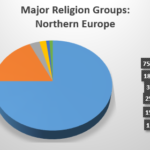What Did Jesus Really Say About Religion? A Closer Look at His Teachings and Their Impact

Introduction: Exploring Jesus’ Perspective on Religion
Throughout history, few figures have shaped humanity’s understanding of religion as profoundly as Jesus of Nazareth. His teachings continue to provoke discussion: Was Jesus simply a reformer of his religious tradition, or did his message fundamentally challenge the very nature of religious practice? This article examines the words and actions of Jesus regarding religion, explores his critique of religious leaders, and provides practical steps for those seeking authentic spiritual life today. All claims are supported by verified, accessible sources, and actionable guidance is provided for those interested in further exploration.
Jesus’ Direct Teachings on Religion and Faith
Jesus’ recorded words about religion often focus less on ritual and more on the deeper matters of the heart. In the Gospels, Jesus is frequently depicted as challenging the religious status quo of his time, particularly when religious practices became obstacles to genuine faith and compassion. For example, in the Gospel of John, Jesus emphasizes belief and relationship over ritual: “The work of God is this: to believe in the one he has sent” (John 6:29). This teaching shifts the focus from outward acts to inner trust and faith [3] .
His message was not an outright rejection of religion, but a call to authenticity. In an encounter with a Samaritan woman, Jesus states, “A time is coming when you will worship the Father neither on this mountain nor in Jerusalem” (John 4:21), suggesting that true worship transcends location and ritual [5] .
Jesus’ Critique of Religious Hypocrisy
One of the most well-documented aspects of Jesus’ message is his criticism of religious leaders who prioritized rules over compassion. In Matthew 23, he denounces the Pharisees and teachers of the law: “So practice and obey whatever they tell you, but don’t follow their example. For they don’t practice what they teach. They crush people with unbearable religious demands and never lift a finger to ease the burden” (Matthew 23:3-4). Jesus highlights the danger of religious hypocrisy and the harm it causes when leaders focus on appearances rather than genuine care [2] .
He continues by teaching, “The greatest among you must be a servant. But those who exalt themselves will be humbled, and those who humble themselves will be exalted” (Matthew 23:11-12), thus emphasizing humility and service as core values in spiritual life [2] .
In practical terms, Jesus’ critique invites individuals and communities today to examine their own religious practices. Are they fostering compassion, justice, and humility, or are they becoming obstacles to genuine connection with God and others?
Religion vs. Relationship: Jesus’ Core Message
Modern interpreters often summarize Jesus’ message as prioritizing a personal relationship with God over adherence to religious systems. As Christian author Jefferson Bethke writes, “Religion says do. Jesus says done. Religion is man searching for God. Jesus is God searching for man” [1] . This captures the heart of Jesus’ teaching: true faith is not about checking boxes or following rituals, but about responding to God’s initiative with trust and love.
To apply this in your own life, consider setting aside time daily to reflect on your motivations for engaging in spiritual practices. Are you acting out of obligation, or is your practice helping you to grow in love and humility? This approach encourages individuals to continually renew their intention and seek authenticity in faith.
True Religion: Compassion, Justice, and Humility
While Jesus strongly criticized empty religious forms, he also affirmed the value of
true religion
-that which reflects God’s character of mercy and justice. The Bible provides additional guidance: “What does the Lord require of you? To act justly and to love mercy and to walk humbly with your God” (Micah 6:8). The New Testament further clarifies: “Religion that God our Father accepts as pure and faultless is this: to look after orphans and widows in their distress and to keep oneself from being polluted by the world” (James 1:27)
[4]
.
For those seeking to practice authentic religion today, this may involve volunteering with organizations that serve vulnerable populations, advocating for justice in your community, or supporting charitable causes. Many faith communities offer opportunities for hands-on service; you can contact your local places of worship or community service centers to learn more about programs that align with these values.

Source: choosingtherapy.com
How to Pursue Authentic Faith in Today’s World
To experience the kind of faith Jesus encouraged, consider the following steps:
- Reflect on Your Motivations: Regularly ask yourself why you participate in religious activities. Are you seeking approval, or genuine connection with God?
- Prioritize Compassion and Service: Look for ways to serve others, especially those in need. Acts of kindness and justice are central to the faith Jesus described.
- Engage in Personal Spiritual Practices: Prayer, meditation, and reading sacred texts can help you develop a deeper relationship with God. Start with passages such as Matthew 5-7 (the Sermon on the Mount) for practical guidance.
- Seek Out Community: Authentic faith is often nurtured in the context of supportive relationships. Consider joining a small group or faith community where open discussion and accountability are encouraged.
- Be Open to Growth: Faith is a journey. Allow yourself to question, wrestle, and grow. Seek out mentors or spiritual directors who can guide you with wisdom and humility.
If you need help finding a faith community or service opportunity, you can:
- Search online for local churches, synagogues, or mosques that offer outreach programs.
- Contact established non-profit organizations such as food banks, shelters, or advocacy groups in your area.
- Consult official directories of religious organizations or visit the websites of recognized denominations for information on local gatherings and support services.
Common Misconceptions and Alternative Views
Some claim that Jesus outright rejected religion. However, a closer look at scripture reveals that his opposition was to
false
religion-where outward rituals replaced genuine faith and love. Jesus participated in Jewish religious life, attended synagogue, and observed traditional festivals, but he continually emphasized the need for inner transformation over external conformity
[4]
.
Alternative approaches include focusing on interfaith dialogue, exploring contemplative practices from various traditions, or participating in non-traditional spiritual communities. While Jesus’ teachings provide a foundation for Christian practice, many find that his emphasis on love, justice, and humility resonates across religious boundaries.

Source: ceytopia.com
Challenges and Solutions
One challenge in pursuing authentic faith is encountering hypocrisy or legalism within religious communities. If you experience this, consider seeking out groups that prioritize openness, humility, and service rather than strict rule-keeping. Engage with spiritual mentors who model the values Jesus taught. If you feel isolated, look for online forums or discussion groups that welcome honest questions and diverse perspectives.
Another challenge is maintaining motivation and consistency in personal practice. Setting realistic goals and connecting with others for mutual encouragement can make a significant difference. Remember, growth in faith is a lifelong process, not a destination.
Key Takeaways
In summary, Jesus’ teachings about religion challenge us to go beyond ritual and strive for authentic faith rooted in love, justice, and humility. He criticized religious hypocrisy but affirmed true religion that cares for the vulnerable and seeks genuine connection with God. For those seeking to live out these principles today, a combination of personal reflection, compassionate action, and community engagement provides a meaningful path forward.
References
- [1] Goodreads (n.d.). Jesus > Religion: Why He Is So Much Better Than Trying Harder, Doing More, and Being Good Enough – Quotes
- [2] Bible Gateway (n.d.). Matthew 23 NLT – Jesus Criticizes the Religious Leaders
- [3] Pushpay (2023). 30 Bible Verses About Faith – Scriptures for Difficult Times
- [4] Explore God (n.d.). What the Bible Says About Religion
- [5] Bible Study Tools (n.d.). The Top Bible Verses about Religion in Scripture






